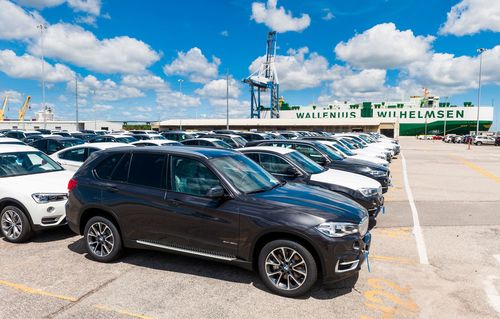BMW is considering building more SUVs in China as tariffs between the United States and China are expected to cut the company’s earnings this year by $344 million, the Reuters news agency is reporting.
Chief Financial Officer Nicolas Peter spoke to journalists Wednesday for the German automaker’s quarterly earnings report. The trade war was one part of a largely gloomy report as the company also cited new technology costs and market disruptions due to other companies dealing with new European Union emissions tests.
The company’s net profit, according to the Associated Press, fell 24 percent in the third quarter.
“We will make a final decision in the coming weeks about which model to localize next in China,” Peter said during the conference call.
In 2017, BMW exported 81,186 vehicles from its plant in Greer to China with an export value of $2.37 billion, according to the automaker.
Optimistic Q2 report: BMW sales up, profits down as German automaker spends billions on R&D, wrestles tariffs
But on July 6, China increased its import tax on American-made automobiles from 25 percent to 40 percent. This came in retaliation to $34 billion in tariffs the Trump administration levied on Chinese imports the same day.
Company spokesman Kenn Sparks told Reuters that if tariffs undermine the competitiveness of BMW production and sales in the U.S., “the result could be strongly reduced export volumes with negative effects on investments and jobs in the U.S.”
In the wake of China’s increased tariffs, BMW was pressed to raise the suggested retail prices of South Carolina-made X5s and X6s by 4 percent to 7 percent, respectively, on July 30.
BMW said the tariff conflict had undermined consumer confidence.
“The trade dispute between the U.S. and China is straining the entire global economy,” BMW Group Chairman Harald Krüger said Wednesday morning.
Meanwhile, sales of the X3 off-road SUV have risen since BMW decided to build it in Asia, cutting its reliance on exports from the United States, Peter said in the Reuters report. Earlier this year, the company stopped shipping American-made X3s to China and moved production to plants in South Africa and China, Sparks said.
“There’s certainly no need to export a vehicle to a country where it’s also being made,” he said.
Last month BMW also took on majority control of a plant it had previously co-owned with a Chinese partner, a move that Reuters said will spur the Germans to shift yet more production to China.
In addition to the X3, the Spartanburg plant also makes the X4, X5, X6 and soon-to-be-released X7. Whether jobs at the plant in Spartanburg County could be affected by the shift toward China was unclear in the morning call, Reuters reported.
In August and again on Wednesday, Krüger affirmed the luxury automaker’s commitment to South Carolina as part of a worldwide strategy of localized markets and production. The company has spent tens of millions of dollars over the past year in a three-year, $600 million expansion of its Spartanburg plant (and $9 billion since in its 25-year history).
“The United States is our second home,” he said.
BMW’s plant in Spartanburg County produces about 400,000 X-model SUVs annually and exports about 270,000, worth an estimated $8.76 billion. It is the company’s largest plant worldwide.
Read or Share this story: https://www.greenvilleonline.com/story/money/2018/11/07/bmw-ongoing-trade-war-could-push-some-sc-car-production-china/1922121002/
